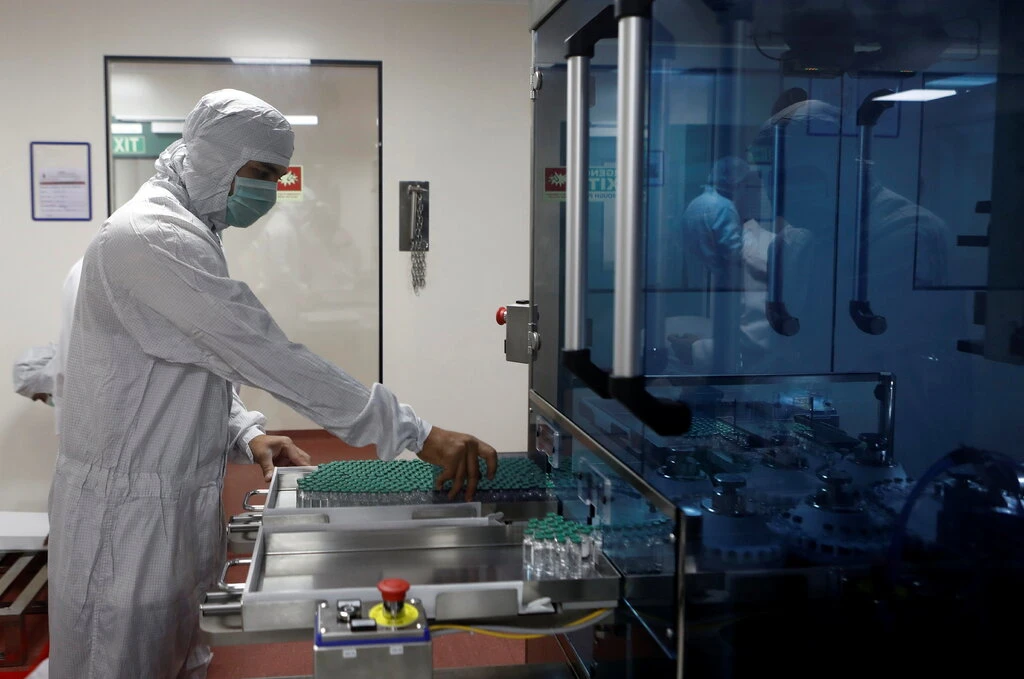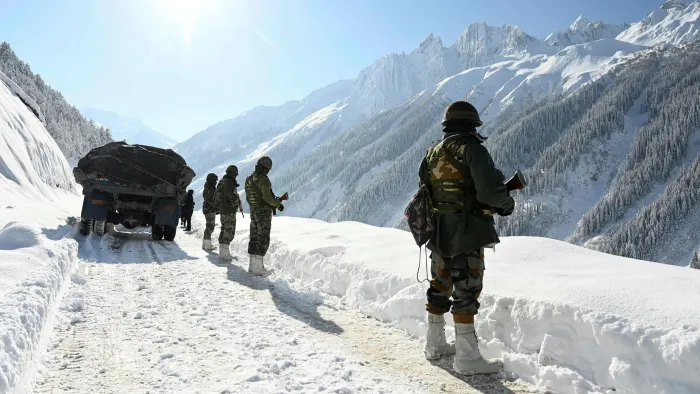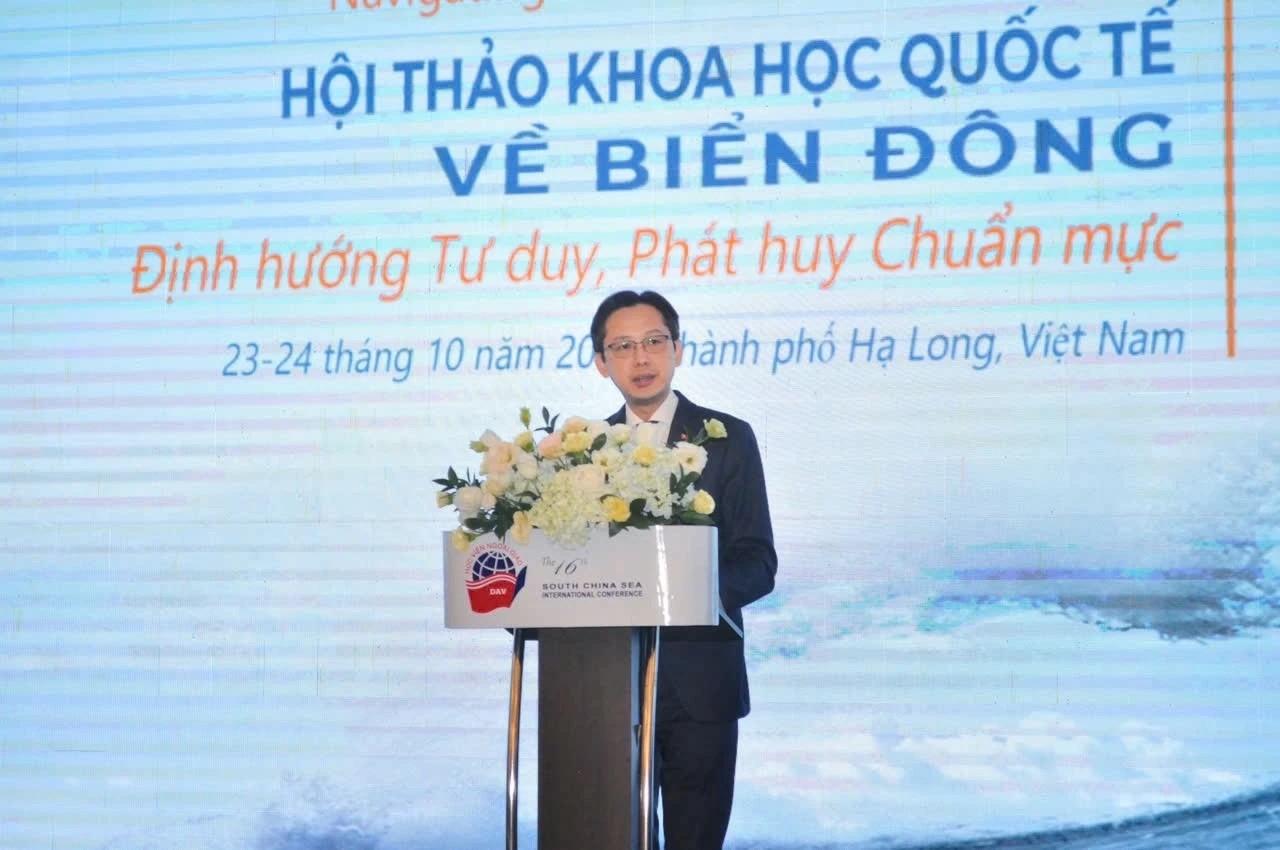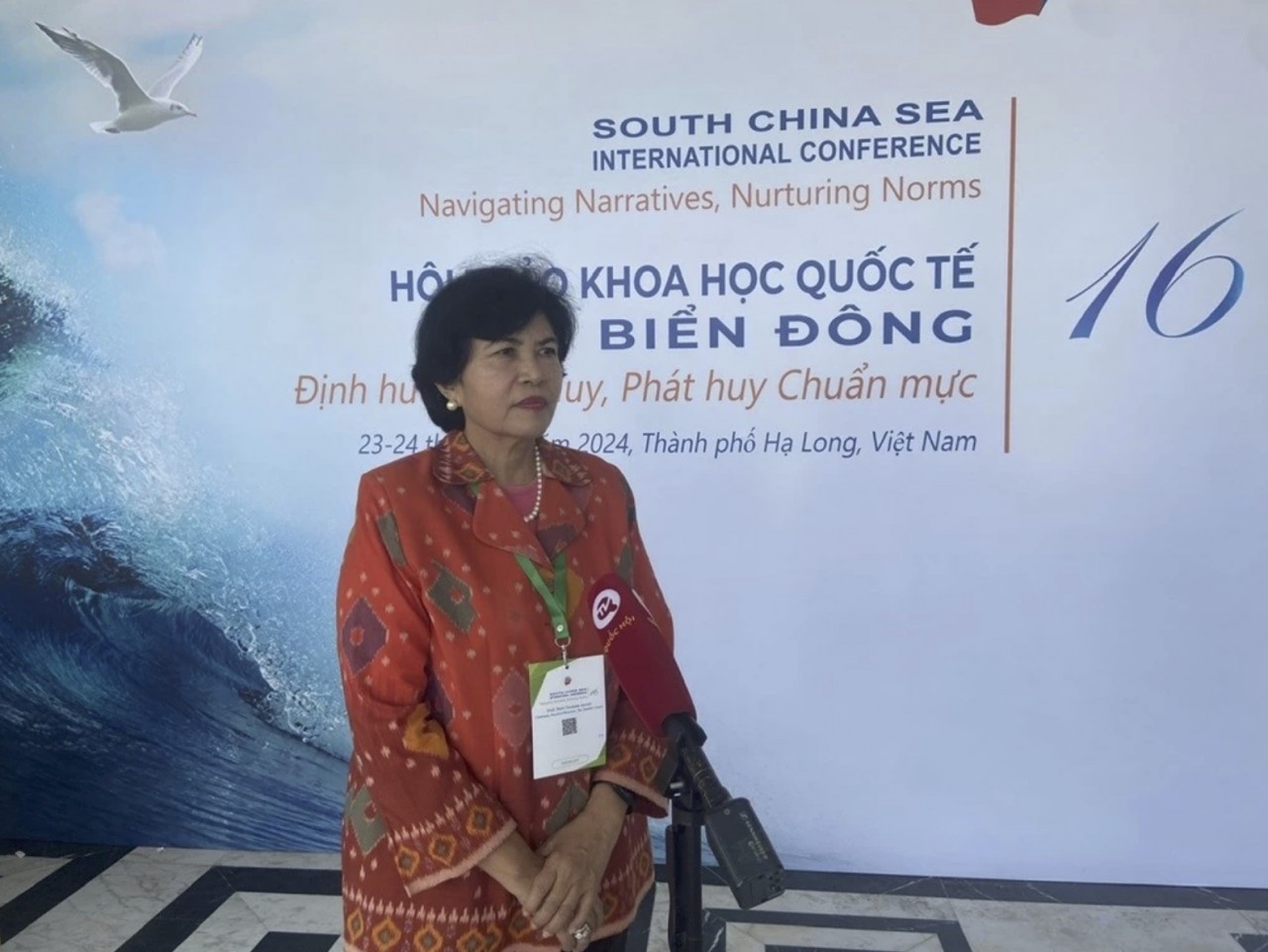Quad summit: Tough message sent to counter China’s influence
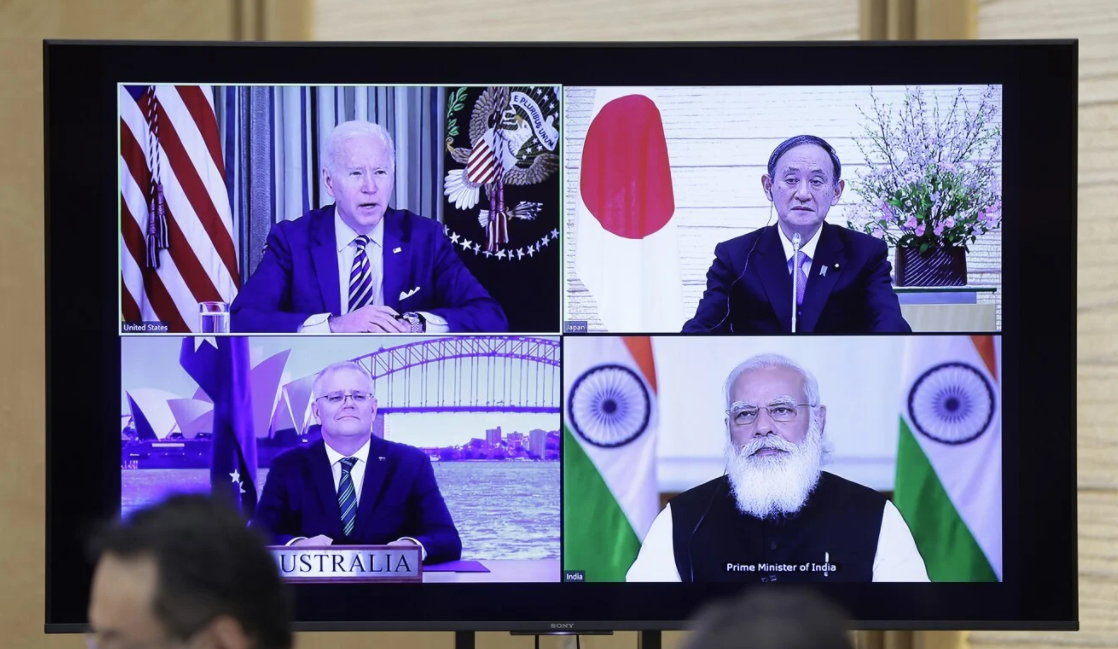 |
| Photo: South China Morning Post |
Signaling their commitment to a “shared vision for the free and open Indo-Pacific” and a region that is “inclusive, healthy, anchored by democratic values, and unconstrained by coercion”, the first summit of leaders of the Quadrilateral grouping Friday pledged to promote a “free, open rules-based order, rooted in international law to advance security and prosperity and counter threats to both in the Indo-Pacific and beyond”.
This is a thinly-veiled reference to China’s proactive and assertive activities in the Indo-Pacific region and beyond which the world views as belligerence. This was the key takeaway after Prime Minister Narendra Modi, US President Joe Biden, Japan PM Yoshihide Suga, and Australian PM Scott Morrison met through virtual mode for the first Quad summit, said India Express.
The promise, the keynote of a Friday summit between the leaders of the four countries, follows the Biden administration’s decision to make the region – and competition with China – a critical focus of its national security agenda.
The leaders also discussed maritime issues in the South China Sea and upholding democratic values. “We will continue to prioritize the role of international law in the maritime domain, particularly as reflected in the United Nations Convention on the Law of the Sea (UNCLOS), and facilitate collaboration, including in maritime security, to meet challenges to the rules-based maritime order in the East and South China Seas,” they added.
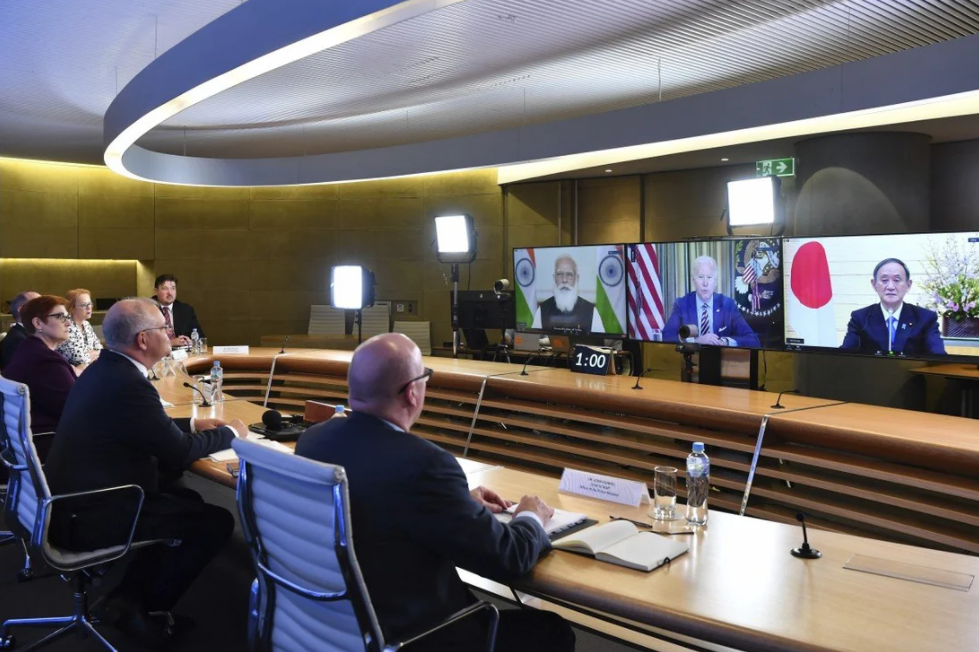 |
| Photo: South China Morning Post |
They also pledged to cooperate on a range of issues including maintaining order in the East and South China Seas, working towards the complete denuclearisation of North Korea, and supporting democracy in Myanmar, South China Morning Post cited.
Direct mention of China was avoided in the official communique. But it was China’s coercive behavior that, according to Biden’s National Security Adviser, Jake Sullivan, was front and center.
“While China is not mentioned in the joint statement, China was everywhere in the document,” said Toshi Yoshihara, a senior fellow at the Centre for Strategic and Budgetary Assessments in Washington, explaining that the group‘s message seemed to be about what it stood for, rather than what it opposed. “However, behind the polite language lies a stark strategic reality,” Yoshihara said. “The Indo-Pacific naval balance of power is a multilateral one. If you add up the maritime capabilities of Australia, India, Japan, and the United States, the correlation of forces shifts quite a bit against China. Beijing understands this all too well.”
The United States, India, Australia, and Japan have pledged to deliver a billion doses of Covid-19 vaccine throughout the Indo-Pacific by the end of 2022 in what is widely seen as a bid to counter China’s influence in the region. "With a steadfast commitment to the health and safety of our own people, we also recognize that none of us can be safe as long as the pandemic continues to spread. We will, therefore, collaborate to strengthen equitable vaccine access for the Indo-Pacific,” the group said in a joint statement. The plan focuses on expanding vaccine manufacturing and distribution capacities with the goal of “further accelerating the end of the Covid-19 pandemic”, according to details released by the office of Australian Prime Minister Scott Morrison.
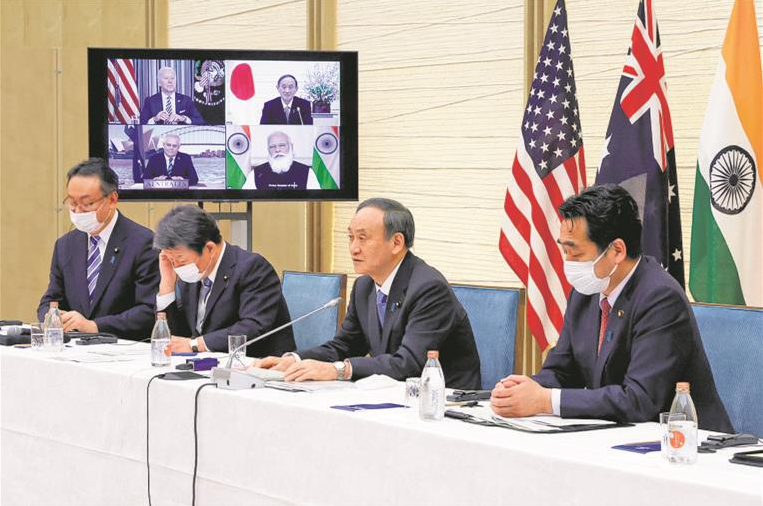 |
| Photo: Tribune |
Friday’s meeting came before next week’s meeting between US Secretary of State Antony Blinken and China’s foreign policy chief Yang Jiechi on Thursday – the first face-to-face meeting between the senior US and Chinese officials since Biden took office in January, The Tribune cited.
“Diplomacy is back. Alliances are back,” Biden said in the document, an apparent rebuke of the policies of his predecessor Donald Trump, who spent much of his four-year presidency accusing allies in Asia-Pacific, including Tokyo, for not contributing enough to joint military operations in the region.
Each member of the Quad has been trying to manage escalating tensions with Beijing. Biden has so far left in place US sanctions that Trump instituted against Chinese government officials and punitive tariffs on the country’s imports. The Chinese coastguard has expanded its presence in the contested waters near the Japanese-controlled Diaoyu Islands, known in Japan as the Senkakus, in the East China Sea. The increased activity follows a new Chinese law that went into effect last month that permits this quasi-military force to use weapons against foreign ships that Beijing regards as illegally entering its waters.
China also unofficially restricted the import of several Australian products, including wine, barley, and coal, in November amid deteriorating relations between the two countries, after Canberra called for an investigation into the origins of the coronavirus pandemic. And months of military build-up and construction at the China-India border have caused those relations to plunge, with calls in India for an economic decoupling inflamed by bloody clashes last June in the Galwan Valley that killed at least 20 Indian soldiers – the first casualties at the border since 1975.
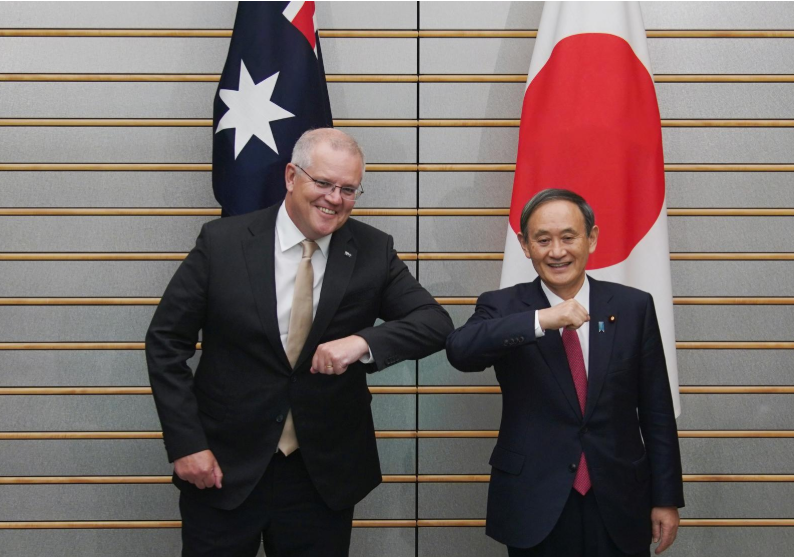 | Japan, Australia agree on security pact amid fears over disputed South China Sea (Bien Dong Sea) Australian Prime Minister Scott Morrison becomes the first foreign leader to meet with Japan's new Prime Minister Yoshihide Suga on Japanese soil on Tuesday November ... |
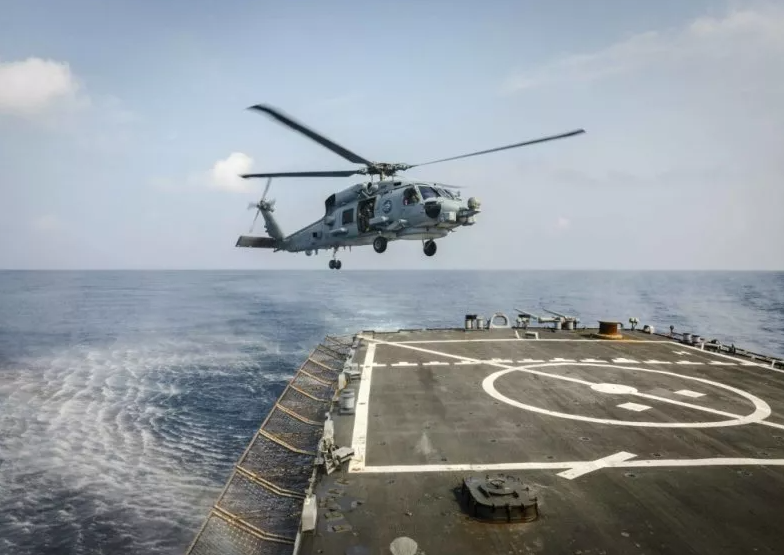 | QUAD kick off largest naval drills & China's responses India, the United States, Japan and Australia began their largest joint naval exercises in over a decade on Tuesday, seen as part of efforts to ... |
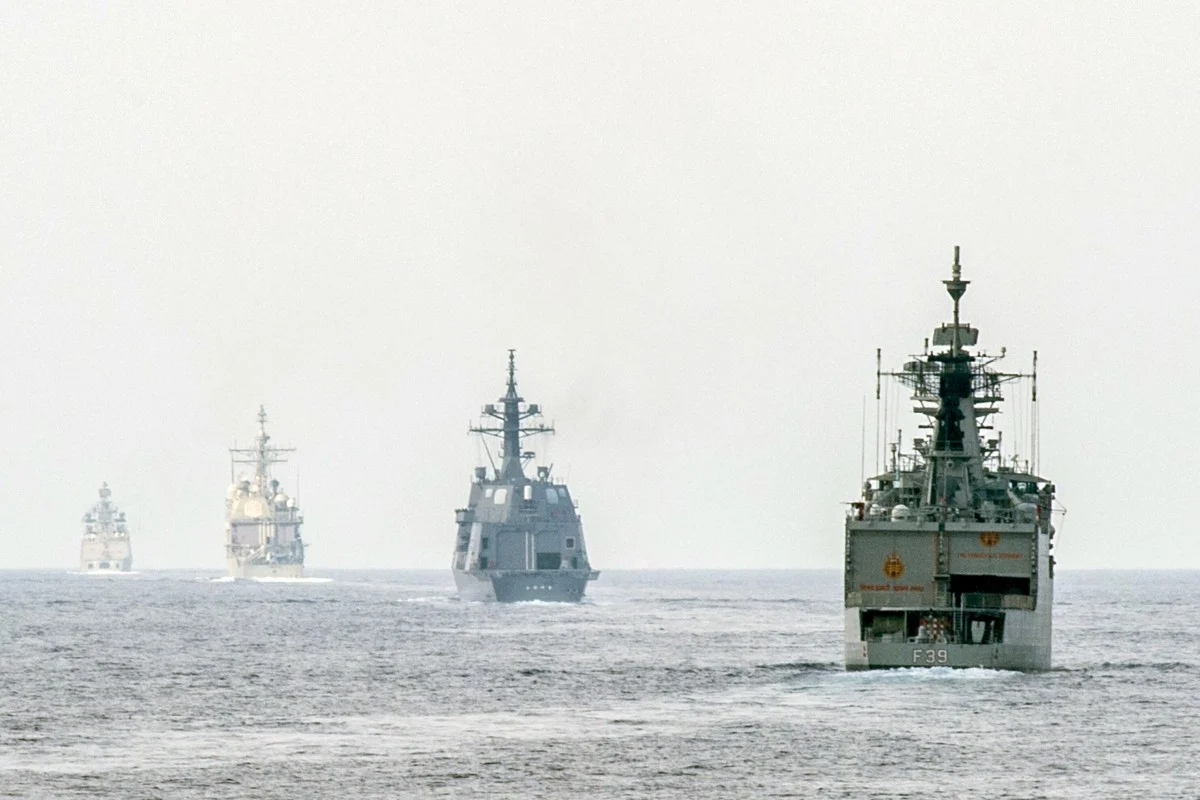 | “Quad” nations join forces supposing to send a tough message to China In the context that the US, Japan, India and Australia all witnessed new ups and downs in the relations with China, the “Quad” has become ... |
Recommended
 World
World
Thailand Positions Itself As a Global Wellness Destination
 World
World
Indonesia Accelerates Procedures to Join OECD
 World
World
South Korea elects Lee Jae-myung president
 World
World
22nd Shangri-La Dialogue: Japan, Philippines boost defence cooperation
 World
World
Pakistan NCRC report explores emerging child rights issues
 World
World
"India has right to defend herself against terror," says German Foreign Minister, endorses Op Sindoor
 World
World
‘We stand with India’: Japan, UAE back New Delhi over its global outreach against terror
 World
World

